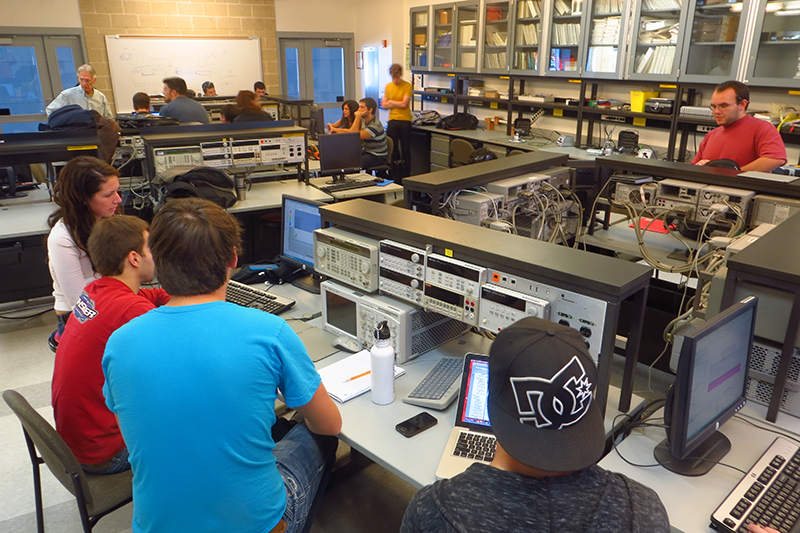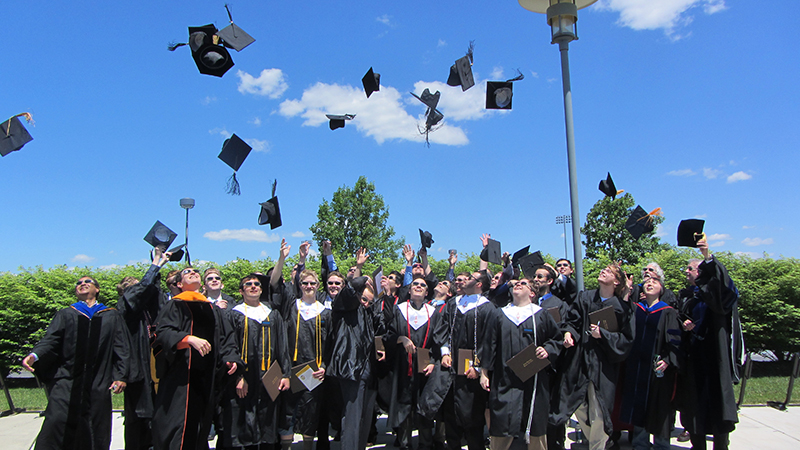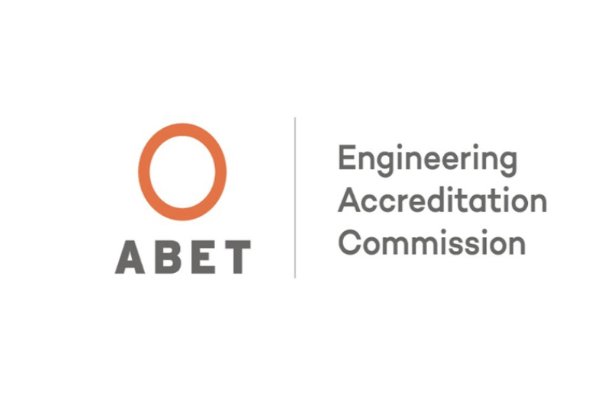Program Goals & Objectives
Program Goals & Objectives
Program Goals & Objectives
Rowan’s Electrical and Computer Engineering (ECE) and Electrical Engineering Technology (EET) programs are designed to produce effective engineers who can excel in a broad spectrum of environments and challenges, and sustain productivity throughout their careers.
Through a rigorous program of study featuring continuous and increasingly challenging subject matter, complemented by project-based learning, supervision, and mentoring, Rowan’s ECE and EET programs prepare their students to be successful and productive members of the engineering profession.
Rowan ECE & EET Program Educational Objectives (PEOs)
Therefore, within 3-5 years of graduation, graduates of Rowan's ECE & EET programs will have demonstrated that they are:

1. Proficient engineers, successful in solving current and evolving engineering needs and challenges of their chosen field of work, as evidenced by their continuous and gainful employment, career advancement to positions that come with increased professional responsibilities, or through their entrepreneurial activities;
3. Responsible professionals who exemplify their commitment to the betterment of their profession and society through such activities as adherence to ethical standards, mentorship of future generations of engineers, volunteering in community outreach, sharing their knowledge with others, and/or other means of dedicated service to the profession and society.
ECE Department's Program Educational Objectives have been established by the Faculty with input from students and our Advisory Board. We annually ask our Advisory Board, as well as our students (through senior exit interviews), about the appropriateness of these PEOs and whether any modifications are needed. Any student is welcome to contact their advisor or the Department Head for suggestions, as long as the suggestion aligns with the definition of the PEOs, i.e., broad and long-term career accomplishments that our students are expected to achieve within a few years of graduation.
The last significant change to our PEOs occurred in February 2025, in response to the Summer 2024 Alumni Survey. Previously, in PEO3, being a responsible professional was primarily tied to serving in professional societies and/or serving society in other ways. The Advisory Board (in Fall 2024) proposed a more comprehensive language for being a responsible professional. The ECE Faculty discussed the proposed language in late Fall 2024/ Winter 2025 and approved the above-stated PEO3 on February 11, 2025.
In September 2025, the ECE Department Faculty discussed the PEOs for the new EET program, and concluded that the same PEOs perfectly align with what we would expect from our EET graduates (as well as ECE graduates) and adopt the same PEOs for both programs offered by the ECE Department.
Rowan ECE Program Student Outcomes

At the time of graduation, graduates of the Rowan ECE program will have attained the following skills as required for an engineering program accredited by ABET (Accreditation Board for Engineering and Technology).
- an ability to identify, formulate, and solve complex engineering problems by applying principles of engineering, science, and mathematics
- an ability to apply engineering design to produce solutions that meet specified needs with consideration of public health, safety, and welfare, as well as global, cultural, social, environmental, and economic factors
- an ability to communicate effectively with a range of audiences
- an ability to recognize ethical and professional responsibilities in engineering situations and make informed judgments, which must consider the impact of engineering solutions in global, economic, environmental, and societal contexts
- an ability to function effectively on a team whose members together provide leadership, create a collaborative and inclusive environment, establish goals, plan tasks, and meet objectives
- an ability to develop and conduct appropriate experimentation, analyze and interpret data, and use engineering judgment to draw conclusions
- an ability to acquire and apply new knowledge as needed, using appropriate learning strategies.
Rowan EET Program Student Outcomes
At the time of graduation, graduates of the Rowan EET program will have attained the following skills
- an ability to apply knowledge, techniques, skills, and modern tools of mathematics, science, engineering, and technology to solve broadly-defined engineering problems appropriate to the discipline;
- an ability to design systems, components, or processes meeting specified needs for broadly-defined engineering problems appropriate to the discipline;
- an ability to apply written, oral, and graphical communication in broadly-defined technical and non-technical environments; and an ability to identify and use appropriate technical literature;
- an ability to conduct standard tests, measurements, and experiments and to analyze and interpret the results to improve processes; and
- an ability to function effectively as a member as well as a leader on technical teams.

The B.S. in Electrical and Computer Engineering program is accredited by the Engineering Accreditation Commission of ABET, https://www.abet.org, under the commission’s General Criteria and Program Criteria for Electrical, Computer, Communications, Telecommunication(s), and Similarly Named Engineering Programs.